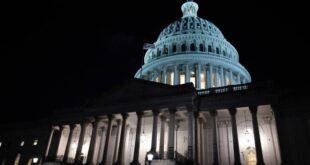UNITED NATIONS, Feb 20 (IPS) – In the western world, numerous studies over the past two decades have shown that the rise of social media in popularity has been linked to negative mental health symptoms, especially among young people. Platforms such as Instagram, Facebook, X (formerly known as Twitter), and TikTok have been criticized for fostering competitive and toxic environments, which contribute to higher rates of anxiety, cyber-bullying, depression, disordered eating, and low self-esteem. While the use of social media in the Global South has skyrocketed in the late 2010s, the ramifications on people in those regions has received much less coverage in mainstream media.
As of 2024, approximately 5.2 billion people around the world use social media, which is over 63 percent of the global population. This marks a significant increase from the number of global social media users in 2015, with just over 2 billion people.
The rise in popularity of social media in the Global South has been attributed to relatively rapid growths in development, particularly in Asian and African countries. Technological advancements and socio-economic progress has facilitated the rise of social media platforms and increased connectivity.
It is estimated that roughly 60 percent of the world’s social media users are in the Global South. However, studies on trends in psychological well-being in these areas in relation to social media usage is extremely limited as the vast majority of research focuses on the Global North.
Pew Research Center conducted a study in 2024 in which populations from eight countries in the Global South were surveyed on their social media habits. Around 73 percent of the sample population use WhatsApp and 62 percent use Facebook, with fewer people using TikTok (36 percent) and Instagram (29 percent). Additionally, there were higher rates of social media usage among younger people, more educated people, and those with higher incomes.
According to a 2021 report written by Zahra Takhshid and published by Vanderbilt University, titled Regulating Social Media in the Global South, policy makers in the Global South have found it difficult to establish regulations due to social media platforms being hubs for connection, commerce, self-expression, business, and political discourse. Additionally, social media platforms accumulate vast amounts of private data on a daily basis, which is an issue that the Global North has been fighting for the past two decades. However, much of the Global South lacks the proper infrastructures to protect users and regulate harmful content.
Many countries have responded to these concerns by restricting or banning the use of certain platforms, which has further blurred analytics on the psychological impact of digital technologies. In 2024, Access Now, a digital rights organization, reported internet or social media shutdowns in Kenya, Mozambique, Tanzania, Mauritius and Equatorial Guinea. These shutdowns usually coincided with pivotal events such as elections, when digital privacy is crucial.
According to Access Now, a nation that has issued restrictions on internet usage or certain platforms are more than likely to do it again. These shutdowns have dangerous implications for the citizens in these countries.
Felicia Anthonio, Access Now’s campaign manager, informed reporters that unfettered access to information, especially in times of crisis, are crucial. “It not only disrupts the flow of information, it also makes it impossible for people to access information in a timely manner. When we are talking about crisis situations, information can be like a lifeline, and disrupting access could be about life and death in conflict situations,” said Anthonio.
Additionally, blocking social media has extensive implications surrounding commerce. In Iran around 73.6 percent of adults use social media, with Meta-owned platforms like Facebook and Instagram having a large presence there, even as U.S. sanctions do not allow the platforms to run legally.
Instagram has fostered a budding online economy in Iran, with many small businesses having built successful brands due to the popularity of the platform. However, U.S. sanctions prevent Iranian users from seeing advertisements. Influencers replace advertisements in Iran, which has led to rampant misinformation being spread to consumers.
In the United States, the Federal Trade Commission (FTC) mandates that all social media influencers must indicate if they were paid by a brand for online promotions. A similar mandate exists in the United Kingdom, known as the Advertising Standard Authority (ASA). However Iran, and several other countries in the Global South, lacks the legal frameworks to protect consumers from misinformation and brand manipulation from influencers. The lack of regulations has also exacerbated Iran’s gambling crisis.
There have also been reports of online misinformation in advertisements in Iran. According to the Vanderbilt University report, Instagram advertisements have contributed to higher rates of mental health issues surrounding body image as well as an overall increase in the nationwide desire for cosmetic procedures.
The Ministry of Health and Medical Education (MOHME) in Iran stated that certain advertisements that promote the efficacy of certain cosmetic treatments are prohibited and must be approved by the Iranian Medical Council. However, these posts remain frequent due to a lack of oversight from social media platforms and the governments in many countries in the Global South.
“There is increasing evidence that shows that increased exposure to social media is related to mental health problems, eating disorders and many other issues that condition and distract social media users, and particularly girls, from education which affects their academic achievement,” said senior policy analyst from the Global Education Monitor (GEM) report team Anna D’Addio.
Despite these conditions not being widely reported on in the Global South, it can be deduced that adolescents in these areas face similar challenges. Due to limited protections, young people in these regions are confronted with a vast array of harmful content that can promote unhealthy behaviors and stunt their personal progress.
IPS UN Bureau Report
Follow @IPSNewsUNBureau
Follow IPS News UN Bureau on Instagram
© Inter Press Service (2025) — All Rights Reserved. Original source: Inter Press Service

